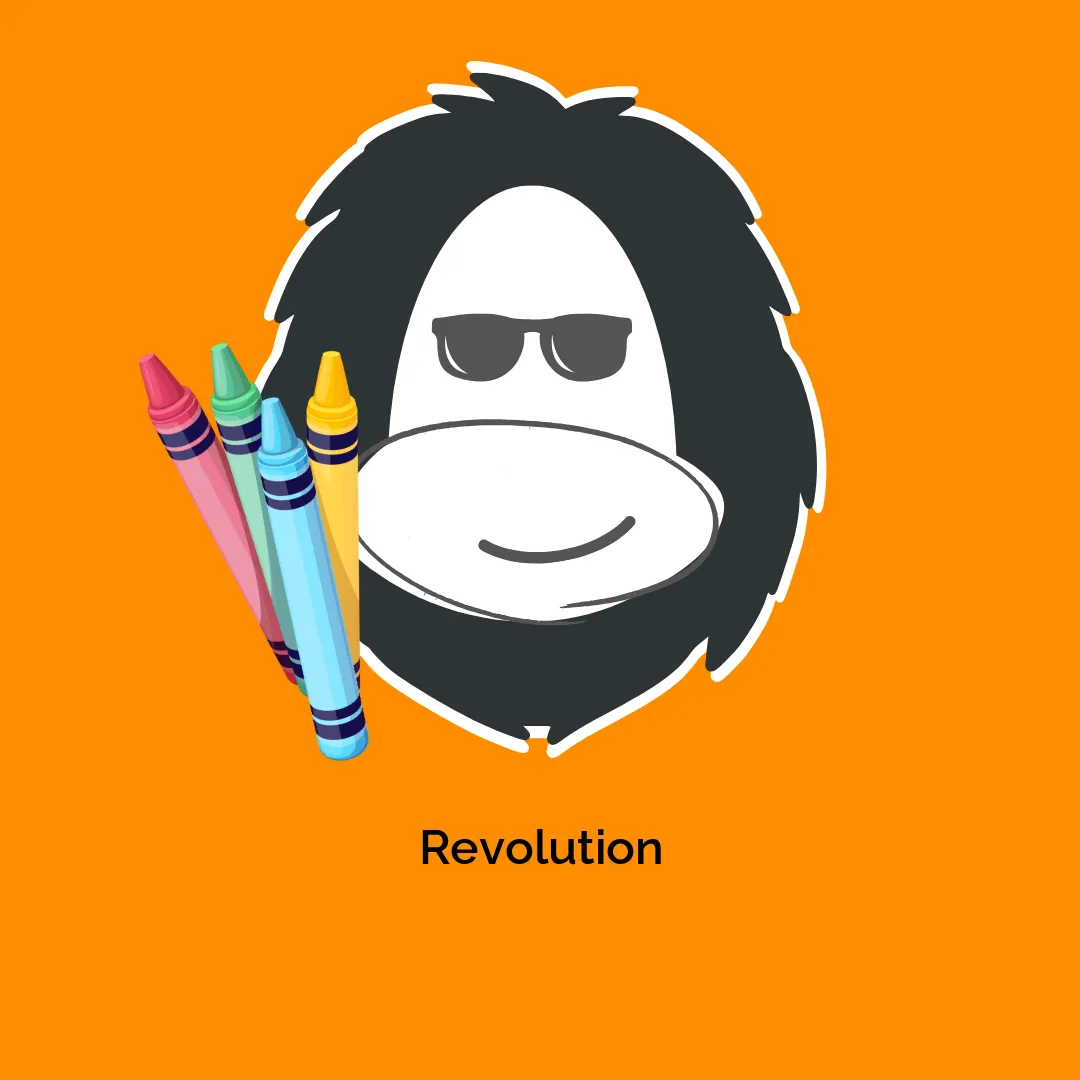The Concept of Revolution in Modern Contexts
In our fast-paced world, the term “revolution” encapsulates significant changes across several domains, including technology, society, and personal development. It embodies transforming ideas, advancing innovations, and reshaping how we live and perceive the world. Understanding the dynamics of revolutions helps frame current events and future possibilities.
Development
A revolution can be defined as a profound change that typically occurs over a short period. Unlike gradual changes or reforms, a revolution often results in radical shifts in culture, technology, and political landscapes. Key examples of revolutions include the Industrial Revolution, the Digital Revolution, and more recently, social revolutions fueled by technology.
The Industrial Revolution
The Industrial Revolution was one of the first major technological revolutions, starting in the late 18th century. Innovations in manufacturing processes drastically altered how goods were produced, disrupting traditional handcraft practices. It introduced machinery, mass production, and factory systems, leading to urbanization as people moved to cities for work. This period not only changed economies but transformed societal structures, setting the foundation for modern capitalist economies.
The repercussions of the Industrial Revolution are still felt today. For instance, the shift from agrarian societies to urban centers created a surplus of labor and fostered new social classes, including the working and middle classes. This significant transformation laid the groundwork for modern economic theories and practices.
The Digital Revolution
Jumping ahead to the late 20th century, we entered the era of the Digital Revolution. The advent of computers and the internet revolutionized communication, commerce, and information access. Unlike previous revolutions that focused on physical labor and production, this technological shift emphasizes information management and digital experiences.
The impact of the Digital Revolution is profound. It has changed how we consume information, allowing access to vast resources at our fingertips. Businesses have adapted to online marketplaces, and socializing has transitioned to digital platforms. The rise of social media is a prime example of how communication dynamics have changed, affecting everything from personal relationships to global movements.
Social Revolutions and Movements
Beyond technology, the concept of revolution extends to social dynamics. Movements advocating for social justice, equality, and human rights can be seen as modern revolutions arising from the collective efforts of individuals seeking change. Recent uprisings across the globe demonstrate this trend, where communities come together to fight for equality, dignity, and justice.
For instance, movements such as Black Lives Matter and the fight for LGBTQ+ rights have emerged in response to systemic injustices, showcasing how social media and modern communication tools empower revolutions. These movements not only reflect societal discontent but also galvanize individuals to act, leading to legislative changes and shifts in cultural ethos.
The Role of Individual Empowerment in Revolutions
A common thread that links historical revolutions with current phenomena is the empowerment of individuals. Each revolution typically spurred by a collective realization that change is possible often leads to transformative shifts. Individual agency becomes crucial, whether it’s through grassroots organizing or innovative thinking that challenges norms.
For instance, in the realm of personal development, individuals are encouraged to embrace their own revolutions. This might involve breaking free from limiting beliefs, adopting new habits, or seeking fulfillment beyond conventional paths. The self-help movement is indicative of this trend, empowering individuals to forge paths through introspection, resilience, and action.
Environmental Revolution
Increasingly, conversations around the climate crisis and sustainability lead to what can be termed an environmental revolution. The call for sustainable practices, renewable energy, and conservation reflects a profound shift in societal values concerning our relationship with nature. Millennials and Generation Z, in particular, are spearheading initiatives that advocate for systemic changes to combat climate change, emphasizing the need for immediate action.
Various movements highlight the importance of adopting sustainable lifestyles, advocating for both individual and collective responsibility. From reducing carbon footprints to supporting sustainable companies, these actions represent a growing awareness of our present and future impact on the planet.
Cultural Revolution
Revolutions are not limited to political or economic arenas; they also manifest in cultural contexts. The Cultural Revolution, which began in China in the 1960s, aimed to reset societal norms and eliminate old, bourgeois customs. Modern cultural revolutions resemble shifts in artistic expression, lifestyle choices, and societal norms, emphasizing diversity and inclusion.
These shifts are seen in global arts, fashion, and entertainment, with marginalized voices increasingly gaining visibility. The rise of influencers and content creators illustrates a democratization of platforms where diverse narratives are shared, challenging traditional cultural hierarchies.
Generational Revolutions
Revolutions also hold generational significance, emphasizing how each generation wrestles with the status quo, presenting newer perspectives that challenge inherited beliefs. Baby boomers, Generation X, Millennials, and Generation Z all have unique revolutions defined by their social environments, technological accessibility, and cultural experiences.
Gen Z, for instance, is marked by their digital fluency and commitment to social issues, evident in their activism and consumer choices. Their approach to brands, jobs, and societal values often emphasizes authentic engagement over traditional corporate loyalty. As they become a larger part of the workforce and societal landscape, their revolutionary spirit is likely to drive numerous changes in business ethics, work-life balance, and corporate responsibility.
The Complexity of Modern Revolutions
Today’s revolutions are complex, characterized by interconnectivity across social, economic, and political realms. The rapid pace of change presents both opportunities and challenges. While advancements yield unprecedented access to information and resources, they also require vigilance against misinformation and polarization.
Continuing to explore the various facets of revolution is vital. Understanding the historical context, the role of technology, and the nuances of social empowerment can provide insight into future trends. Revolutions do not occur in isolation; they often build upon each preceding wave while adapting to contemporary contexts.
Conclusion
The term ‘Revolution’ resonates widely in our modern world, spanning technological advancements, social movements, cultural changes, and personal transformations. Each revolution reflects a push against the norm, a critical response to existing structures, and an embrace of new ideas. As we navigate through these changes, remaining aware of the significant implications they hold for our individual lives and society at large offers essential perspective. Embracing this revolutionary spirit equips us to participate actively in shaping the future, whether through individual improvements or collective endeavors that challenge societal expectations. It is through these revolutions that we continue to evolve, aspire, and build better systems for generations to come.
Revolution: Download for Free on OrangoGPL
Yes indeed, downloading Revolution for Free on OrangoGPL is feasible and perfectly legitimate.
Actually, even downloading a cracked Revolution is law-abiding, and this is because the license it is distributed under is the General Public License, and this license enables the user its free modification, distribution, and resale.
Thus, be calm: If you wish to buy Revolution cheaply or, directly, to download Revolution Themes nulled and, so, have it 100% free,, it’s possible legitimately.
Revolution GPL: The option for startup entrepreneurs
It doesn’t matter how you name it: Revolution deals, download Revolution Themes GPL, download Revolution without license or download Revolution Themes cracked.
It is something absolutely legal and something indispensable for every startup entrepreneur.





Reviews
There are no reviews yet.